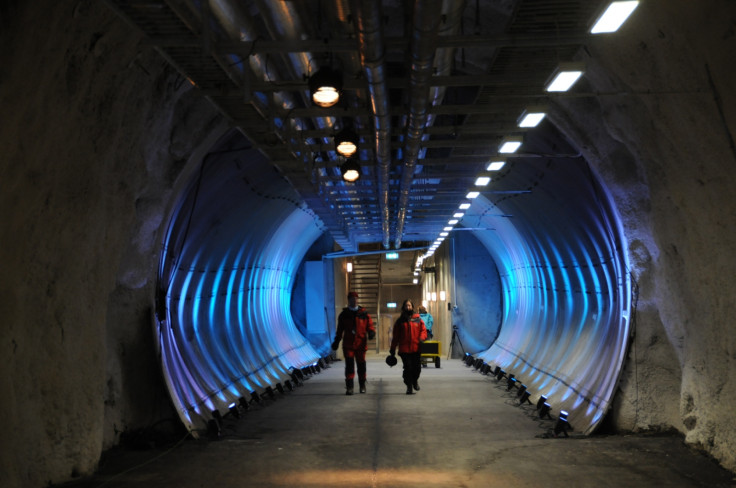Doomsday vault in Norway is going to get a few upgrades including a new tunnel
Global warming could cause the Svalbard Global Seed Vault to flood and these upgrades are countermeasures.

The Svalbard Global Seed Vault (SGSV) in Norway is about to get upgrades to many of its systems, including a new access tunnel.
The facility is built directly into the Arctic permafrost and stays at a frigid -18 degrees C. The cost of these upgrades has been estimated at a price of nearly $13m (£9.3m), reports Futurism. The original cost of construction of the vault in 2008 was estimated to be $9m (£6.4m).
However, the changing weather has affected the seed vault and it is due for upgrades. Last year, reports emerged that the permafrost within which the vault is built began to thaw and there was a bit of flooding in the SGSV. The upgrades are designed to counter this in case it should happen again.
"The project includes the construction of a new, concrete-built access tunnel, as well as a service building to house emergency power and refrigerating units and other electrical equipment that emits heat through the tunnel," notes a government release from Norway.
"This demonstrates that the seed vault is a worldwide insurance for food supply for future generations," Agriculture Minister Jon Georg Dale said in a statement.
The SGSV, works like a bank for plants. Here, at the edge of the Arctic, seeds from every country in the world are stored so as to make it possible to recover plant life, including crops in case of a global catastrophe. Disease, global warming or nuclear war could wipe out large swathes of land, and with it, the plants that lived there.
Opened in 2008, the doomsday vault, in essence is a massive freezer for countries to store their valuable plants. There are over 850,000 seed samples at Svalbard with each country providing their own packages with seeds for safekeeping. Even North Korea has an "account" here. The SGSV also serves as a backup for other seed vaults around the world.
The seed bank has proved its usefulness at least on one occasion. Following the civil war in Syria, the country made a rare "withdrawal" from SGSV in 2015. The seeds were used to regrow crops, and fresh seeds of the same crop were returned to Svalbard last year, the Futurism report notes.





















